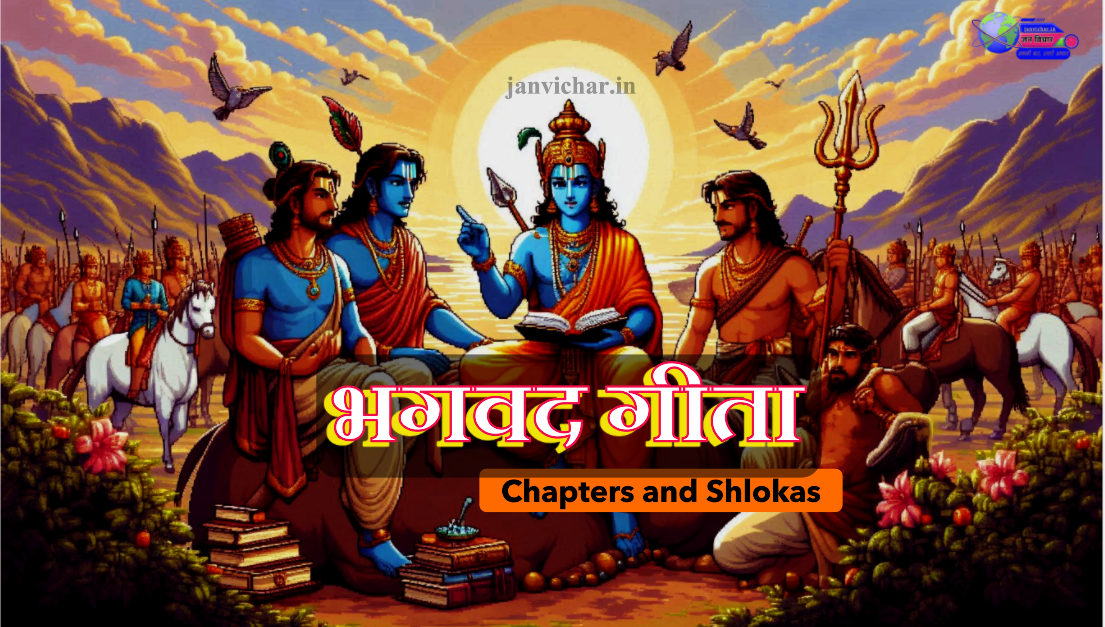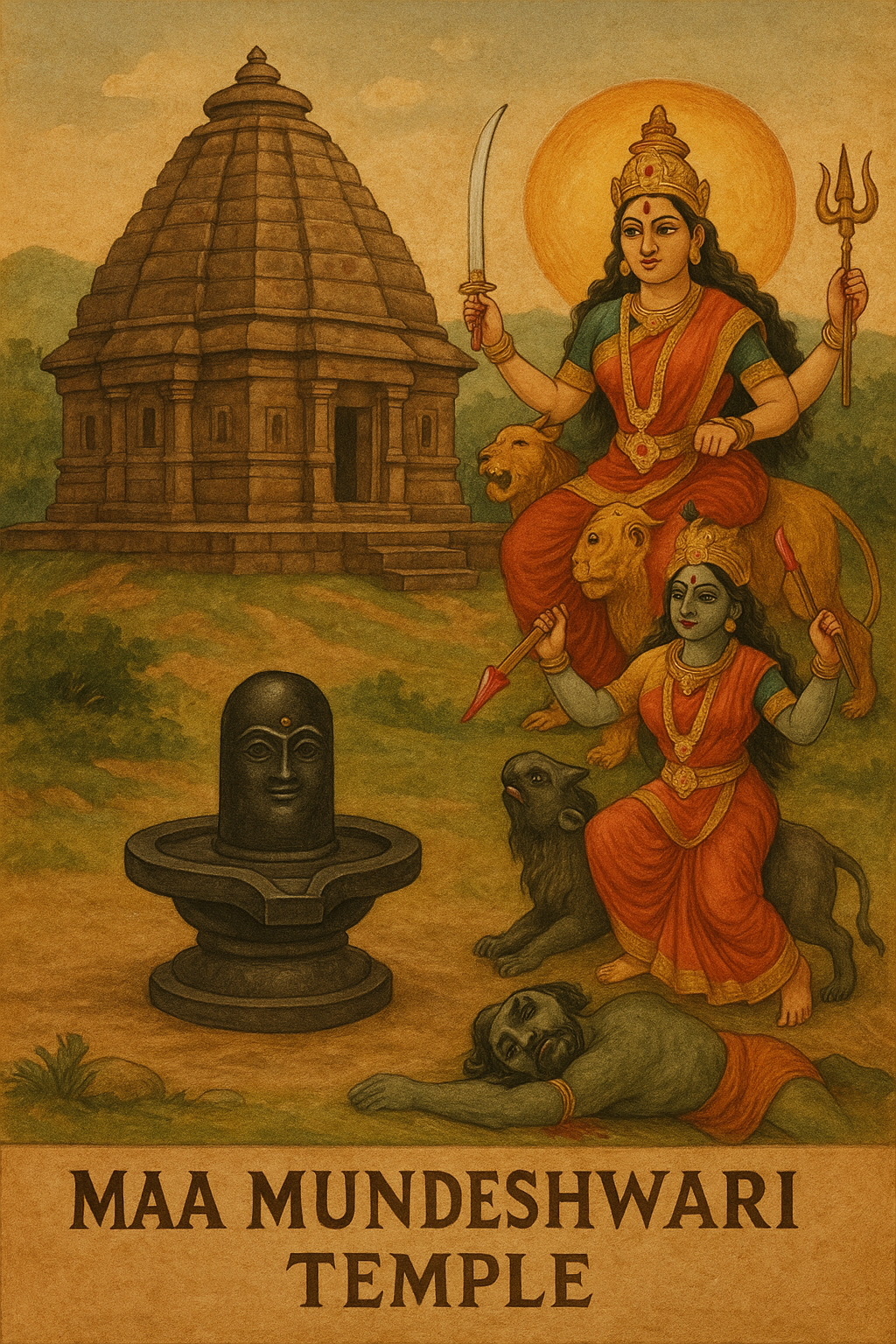
This soul is unbreakable and incombustible; it can neither be dampened nor dried. It is everlasting, all-pervading, unalterable, immutable, and primordial.
Verse 24
Sanskrit:
अच्छेद्योऽयमदाह्योऽयमक्लेद्योऽशोष्य एव च |
नित्यः सर्वगतः स्थाणुरचलोऽयं सनातनः || 24 ||
Hindi:
यह आत्मा न तो काटी जा सकती है, न जलाई जा सकती है, न गीली की जा सकती है और न सुखाई जा सकती है। यह आत्मा शाश्वत, सर्वव्यापी, स्थिर, अचल और सनातन है।
English:
This soul is unbreakable and incombustible; it can neither be dampened nor dried. It is everlasting, all-pervading, unalterable, immutable, and primordial.
Verse 25
Sanskrit:
अव्यक्तोऽयमचिन्त्योऽयमविकार्योऽयमुच्यते |
तस्मादेवं विदित्वैनं नानुशोचितुमर्हसि || 25 ||
Hindi:
यह आत्मा अव्यक्त, अचिन्त्य और अविकार्य है। इसलिए, इसे इस प्रकार जानकर, तुम्हें शोक नहीं करना चाहिए।
English:
This soul is said to be unmanifest, inconceivable, and immutable. Knowing this, you should not grieve.
Verse 26
Sanskrit:
अथ चैनं नित्यजातं नित्यं वा मन्यसे मृतम् |
तथापि त्वं महाबाहो नैवं शोचितुमर्हसि || 26 ||
Hindi:
यदि तुम इसे नित्य जन्म लेने वाला और नित्य मरने वाला मानते हो, तब भी हे महाबाहु! तुम्हें शोक नहीं करना चाहिए।
English:
If you think of this soul as constantly being born and constantly dying, even then, O mighty-armed, you should not grieve.
Verse 27
Sanskrit:
जातस्य हि ध्रुवो मृत्युर्ध्रुवं जन्म मृतस्य च |
तस्मादपरिहार्येऽर्थे न त्वं शोचितुमर्हसि || 27 ||
Hindi:
क्योंकि जो जन्म लेता है उसकी मृत्यु निश्चित है और जो मरता है उसका जन्म भी निश्चित है। इसलिए, अपरिहार्य के लिए तुम्हें शोक नहीं करना चाहिए।
English:
For one who has taken birth, death is certain; and for one who is dead, birth is certain. Therefore, you should not lament over the inevitable.
Verse 28
Sanskrit:
अव्यक्तादीनि भूतानि व्यक्तमध्यानि भारत |
अव्यक्तनिधनान्येव तत्र का परिदेवना || 28 ||
Hindi:
हे भारत! सभी प्राणी अव्यक्त रूप में आरंभ होते हैं, व्यक्त रूप में मध्य में होते हैं और अव्यक्त रूप में समाप्त होते हैं। फिर शोक किस बात का?
English:
All beings are unmanifest in their beginning, manifest in their middle state, and unmanifest again when annihilated. So why lament?
Verse 29
Sanskrit:
आश्चर्यवत्पश्यति कश्चिदेनमाश्चर्यवद्वदति तथैव चान्यः |
आश्चर्यवच्चैनमन्यः श्रृणोति श्रुत्वाप्येनं वेद न चैव कश्चित् || 29 ||
Hindi:
कोई इसे आश्चर्य की तरह देखता है, कोई इसे आश्चर्य की तरह बताता है, और कोई इसे आश्चर्य की तरह सुनता है, फिर भी कोई इसे जान नहीं पाता।
English:
Some see this soul as amazing, some describe it as amazing, and some hear of it as amazing, while others, even after hearing about it, cannot understand it at all.
Verse 30
Sanskrit:
देही नित्यमवध्योऽयं देहे सर्वस्य भारत |
तस्मात्सर्वाणि भूतानि न त्वं शोचितुमर्हसि || 30 ||
Hindi:
हे भारत! यह आत्मा सभी शरीरों में नित्य अवध्य है। इसलिए, सभी प्राणियों के लिए तुम्हें शोक नहीं करना चाहिए।
English:
O Bharata, the soul residing in the bodies of all beings is eternal and indestructible. Therefore, you should not grieve for any creature.
Verse 31
Sanskrit:
स्वधर्ममपि चावेक्ष्य न विकम्पितुमर्हसि |
धर्म्याद्धि युद्धाच्छ्रेयोऽन्यत्क्षत्रियस्य न विद्यते || 31 ||
Hindi:
अपने स्वधर्म को देखते हुए भी तुम्हें विचलित नहीं होना चाहिए, क्योंकि क्षत्रिय के लिए धर्मयुक्त युद्ध से बढ़कर कोई अन्य कल्याणकारी कार्य नहीं है।
English:
Considering your own duty as a warrior, you should not waver. For a warrior, there is nothing more honorable than a war against evil.
Verse 32
Sanskrit:
यदृच्छया चोपपन्नं स्वर्गद्वारमपावृतम् |
सुखिनः क्षत्रियाः पार्थ लभन्ते युद्धमीदृशम् || 32 ||
Hindi:
हे पार्थ! ऐसा युद्ध जो स्वयं ही प्राप्त हो, वह स्वर्ग के द्वार को खोलने वाला है। ऐसे युद्ध को पाकर क्षत्रिय धन्य होते हैं।
English:
O Partha, happy are the warriors to whom such opportunities to fight come unsought, opening for them the doors of the heavenly planets.
Verse 33
Sanskrit:
अथ चेत्त्वमिमं धर्म्यं संग्रामं न करिष्यसि |
ततः स्वधर्मं कीर्तिं च हित्वा पापमवाप्स्यसि || 33 ||
Hindi:
यदि तुम इस धर्मयुक्त युद्ध को नहीं करोगे, तो अपने स्वधर्म और कीर्ति को खोकर पाप को प्राप्त होगे।
English:
But if you do not participate in this righteous war, you will be neglecting your duty and losing your reputation, thus incurring sin.
Verse 34
Sanskrit:
अकीर्तिं चापि भूतानि कथयिष्यन्ति तेऽव्ययाम् |
सम्भावितस्य चाकीर्तिर्मरणादतिरिच्यते || 34 ||
Hindi:
सभी प्राणी तुम्हारी अविनाशी अपकीर्ति की चर्चा करेंगे, और सम्मानित व्यक्ति के लिए अपकीर्ति मृत्यु से भी बढ़कर होती है।
English:
People will speak of your unending infamy, and for a person who has been honored, dishonor is worse than death.
Verse 35
Sanskrit:
भयाद्रणादुपरतं मंस्यन्ते त्वां महारथाः |
येषां च त्वं बहुमतो भूत्वा यास्यसि लाघवम् || 35 ||
Hindi:
महान योद्धा सोचेंगे कि तुम भय के कारण युद्ध से हट गए हो। जिनके द्वारा तुम बहुत सम्मानित थे, वे तुम्हें तुच्छ समझेंगे।
English:
The great generals who hold you in high esteem will think that you have fled from the battlefield out of fear, and thus they will consider you a coward.
Verse 36
Sanskrit:
अवाच्यवादांश्च बहून्वदिष्यन्ति तवाहिताः |
निन्दन्तस्तव सामर्थ्यं ततो दुःखतरं नु किम् || 36 ||
Hindi:
तुम्हारे शत्रु तुम्हारे सामर्थ्य की निंदा करते हुए तुम्हारे बारे में बहुत सी अनुचित बातें कहेंगे। इससे बढ़कर तुम्हारे लिए और क्या दुःख हो सकता है?
English:
Your enemies will speak many unmentionable words and scorn your ability. What could be more painful than this?
Verse 37
Sanskrit:
हतो वा प्राप्स्यसि स्वर्गं जित्वा वा भोक्ष्यसे महीम् |
तस्मादुत्तिष्ठ कौन्तेय युद्धाय कृतनिश्चयः || 37 ||
Hindi:
यदि तुम मारे गए तो स्वर्ग को प्राप्त होगे, और यदि तुम विजयी हुए तो पृथ्वी का राज्य भोगोगे। इसलिए, हे कौन्तेय! युद्ध के लिए दृढ़ निश्चय करके उठो।
English:
If you are killed, you will attain heaven; if you are victorious, you will enjoy the earth. Therefore, arise, O son of Kunti, and be determined to fight.
Verse 38
Sanskrit:
सुखदुःखे समे कृत्वा लाभालाभौ जयाजयौ |
ततो युद्धाय युज्यस्व नैवं पापमवाप्स्यसि || 38 ||
Hindi:
सुख-दुःख, लाभ-हानि और जय-पराजय को समान मानकर युद्ध करो। इस प्रकार तुम पाप को प्राप्त नहीं करोगे।
English:
Treating pleasure and pain, gain and loss, and victory and defeat alike, engage in battle for the sake of duty. By doing so, you will not incur sin.
Verse 39
Sanskrit:
एषा तेऽभिहिता साङ्ख्ये बुद्धिर्योगे त्विमां शृणु |
बुद्ध्या युक्तो यया पार्थ कर्मबन्धं प्रहास्यसि || 39 ||
Hindi:
अब तक मैंने तुम्हें सांख्य योग की बुद्धि से बताया है। अब तुम योग की बुद्धि सुनो, जिससे युक्त होकर तुम कर्मबंधन को त्याग सकोगे।
English:
Thus far, I have described this knowledge to you through analytical study. Now listen as I explain it in terms of working without fruitive results. O son of Pritha, when you act in such knowledge, you can free yourself from the bondage of works.
Verse 40
Sanskrit:
नेहाभिक्रमनाशोऽस्ति प्रत्यवायो न विद्यते |
स्वल्पमप्यस्य धर्मस्य त्रायते महतो भयात् || 40 ||
Hindi:
इस योग में आरंभ का नाश नहीं होता और प्रत्यवाय भी नहीं होता। थोड़ा सा भी इस धर्म का आचरण महान भय से रक्षा करता है।
English:
In this endeavor, there is no loss or diminution, and a little advancement on this path can protect one from the most dangerous type of fear.
Read More – Bhagavad gita Chapter 2: Sankhya Yoga – Shlokas 1 – 23 Know more – Hindi/English/Sanskrit
Bhagavad gita Chapter 2: Sankhya Yoga – Shlokas 1 – 23 Know more – Hindi/English/Sanskrit
![]()
Discover more from जन विचार
Subscribe to get the latest posts sent to your email.







